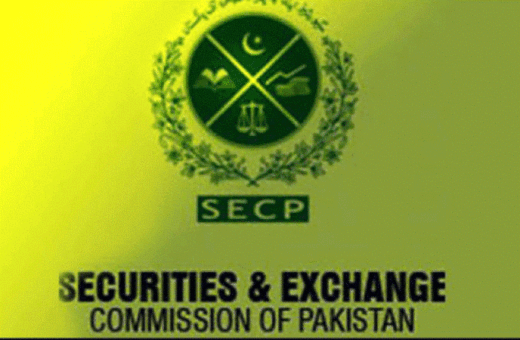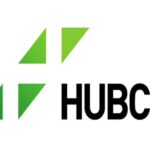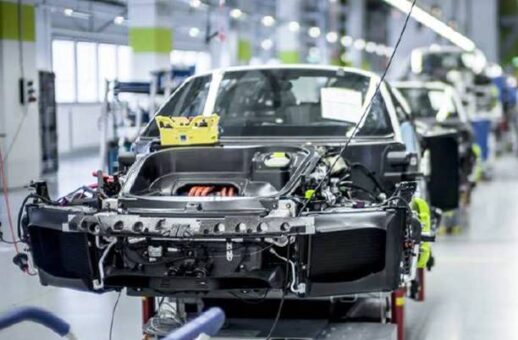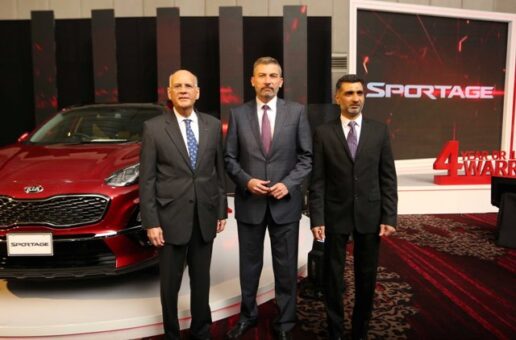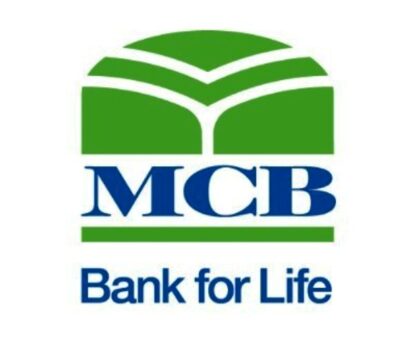KARACHI: The revenue measures taken by the government in the budget 2019/2020 and massive depreciation in Pak Rupee value have been major challenges for the auto industry as these factors have already adversely hit the sales volumes in the first half (January – June) 2019, a report said.
Pak Suzuki Motors Company Limited in its report for the period ended June 30, 2019 (January – June 2019) said that sales volume of auto industry for cars and light commercial vehicles was recorded at 118,519 units compared to 134,494 units in corresponding period of last year, registering decrease of 12 percent.
Sales volume of the Company during the half year January – June 2019 declined by 11 percent from 76,482 units to 68,147 units, in line with industry trend.
The total sales volume of the Company represented 56 percent of Pakistan’s total market of cars and light commercial vehicles. The Company operated at 80 percent capacity utilization and achieved production volume of 60,098 units, the report said.
During the period under review, the organized market (PAMA member companies) for motorcycles and three wheelers decreased from 990,102 units to 855,396 units. Decrease of 134,706 units represents 14 percent decline in sales volume over same period of last year. However, Company sales volume remained consistent and achieved sales volume of 11,600 units as compared to sales volume of 11,292 units in corresponding period of last year.
The report said that the company incurred net loss of Rs 1,526 million compared to net profit Rs 1,298 million in same period of last year. Net sales revenues increased by Rs 3,145 million from Rs 62,284 million (Jan-Jun 2018) to Rs 65,429 million (Jan-Jun 2019).
Higher prices in current period contributed in increased sales revenue by 5 percent over the same period of last year. Gross profit decreased in absolute terms by Rs 2,886 million from Rs 4,258 million (Jan-Jun 2018) to Rs 1,372 million (Jan-Jun 2019). Gross profit margins as a percentage of net sales declined from 6.8 percent to 2.1 percent of net sales.
“Devaluation of Pak Rupee resulted in increase in imported material cost, consequently adversely affecting the gross profit margins.”
It said that Pakistan’s economy is in difficult situation. “We witnessed sharpest increase in policy rates in recent time by State Bank of Pakistan (SBP).”
SBP further increased policy rate by 100 basis points to 13.25% in ‘Monetary Policy’ announced in July 2019. Average inflation for fiscal year 2019-20 is expected to remain in the range of 11% to 12% due to higher fiscal deficit, inflation and Pak Rupee depreciation.
In July 2019, the Executive Board of the IMF program approved a 39-month arrangement under the Extended Fund Facility (EFF) for US$ 6 billion to support the Government of Pakistan’s economic reform program.
Outlook for external financing has improved with the disbursement of the first IMF tranche associated with IMF EFF, activation of Saudi Oil Facility and other commitments from multilateral and bilateral partners.
Current Account deficit has continued to fall reducing external pressure.
The tax measures announced in the Federal Budget 2019-20 have severely hit the auto industry. Additional Customs Duty (ACD) on imported material has been increased by 2 percent to 5 percent. The government also imposed ‘Regulatory Duty’ on import of different kinds of vehicles. The government has enlarged the scope of Federal Excise Duty (FED) and imposed FED on locally assembled cars as well as on imported cars at the rate of 2.5 percent with engine capacity up to 1000cc, 5 percent from 1001cc to 2000cc and 7.5 percent on 2001cc and above.
Tax credit on investment in Plant & Machinery under section 65B of Income Tax Ordinance 2001 has been reduced from 10 percent to 5 percent for tax year 2019 while no tax credit from tax year 2020 and onwards.
Further Government withdrew gradual reduction in corporate tax rate from 29 percent to 25 percent and on the other hand increased minimum tax from 1.25 percent to 1.5 percent of turnover.
“These additional taxes coupled with massive depreciation of Pak Rupee adversely affected the cost of vehicles and it forced the OEMs to increase the prices of their vehicles,” the report said, adding that consequently, higher prices of vehicles will likely affect sales volume of auto industry as price hikes will weaken the purchasing power of costumers.
According to the report the Company is endeavoring to improve sales, profitability and diversity in its operations by upgrading the existing products and launching new products.
The company launched the New Alto in June 2019. New Alto harbors contemporary 660cc R-series engine, modern design, spacious interior with great fuel efficiency and Japanese technology.
New Alto received overwhelming response from customers due to its distinguished features.
Macroeconomic indicators of the country are challenging for auto industry. Pak Rupee devaluation, rising raw material prices, increase in interest rate and additional taxes and duties imposed through Federal Budget are major challenges for auto industry.
Variation in forex rates and import duties influenced the pricing of products due to high element of imported components in total cost of products. Your Company has geared up to meet the challenges in future with wide range of quality products at competitive prices through an efficient network of authorized dealers.
